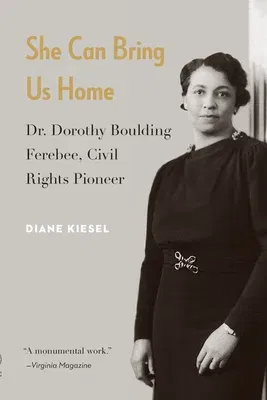Diane Kiesel
(Author)She Can Bring Us Home: Dr. Dorothy Boulding Ferebee, Civil Rights PioneerPaperback, 1 March 2019

Qty
1
Turbo
Ships in 2 - 3 days
Only 3 left
Free Delivery
Cash on Delivery
15 Days
Free Returns
Secure Checkout

Print Length
414 pages
Language
English
Publisher
Potomac Books
Date Published
1 Mar 2019
ISBN-10
1640121684
ISBN-13
9781640121683
Description
Product Details
Author:
Book Format:
Paperback
Country of Origin:
US
Date Published:
1 March 2019
Dimensions:
22.86 x
15.24 x
2.34 cm
Genre:
African American
ISBN-10:
1640121684
ISBN-13:
9781640121683
Language:
English
Pages:
414
Publisher:
Weight:
603.28 gm